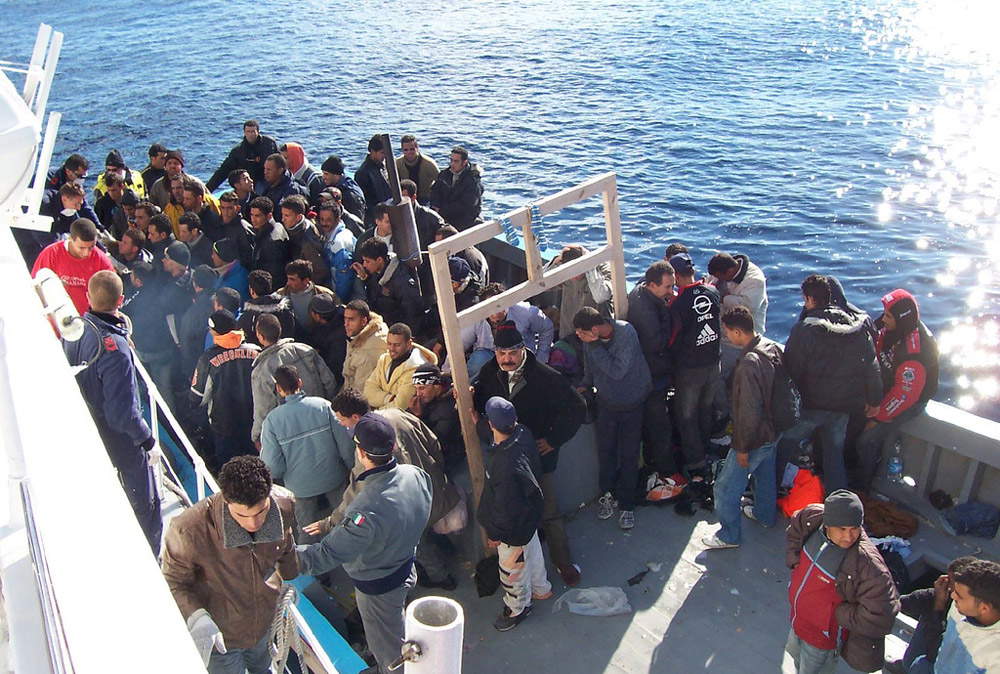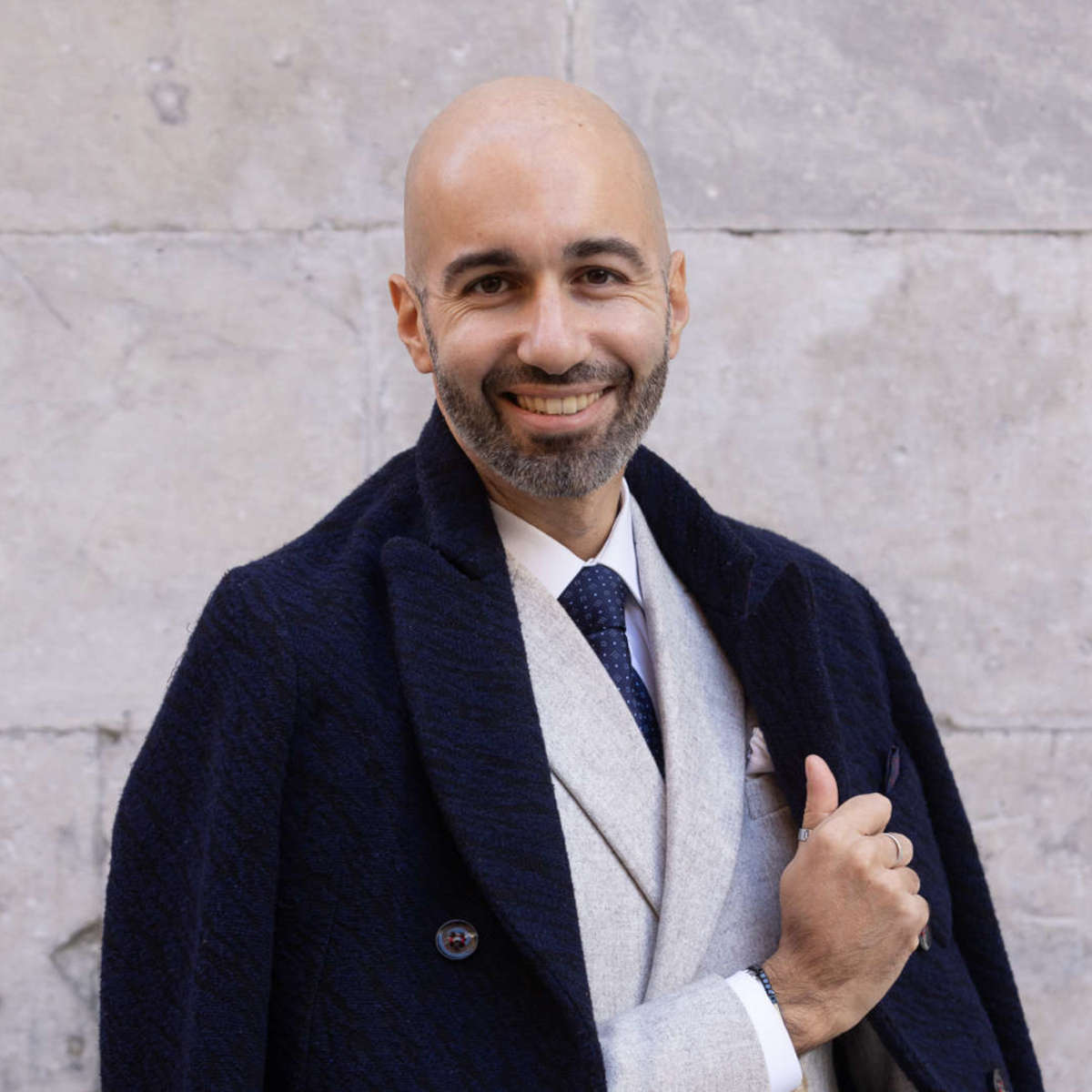I had to reread the sentence several times, since I found it hard to believe that, in the Italy of 2017, there was really a regional alderman capable of uttering such a monstrosity, such a concentration of absence of empathy,political inadequacy, and failure to control words, as well as a dangerous precedent that should be remedied with the only possible solution: the resignation of the regional alderman capable of going that far. We are talking about Anthony Barbagallo, Sicily Region’s tourism councillor, who in the past few hours, in an interview with La Sicilia, said that one of the “emergencies that damages our excellence is immigration,” adding, “I am not racist and I am for welcoming, but with some common sense limits. One of them: don’t distribute refugees in tourist municipalities. You can’t do Sprar with dozens of migrants in Taormina, Bronte or Unesco heritage. The migrants must be distributed elsewhere. So I ask our diligent prefects to exempt the mayors of Sicilian tourist municipalities from the obligation to receive them.”
These are statements of an unprecedented gravity, completely unworthy of one who holds a public office endowed with high responsibilities, of one who represents citizens, and is moreover a member of a party founded on democratic and anti-discriminatory principlesî. For a variety of reasons: meanwhile, they fuel the culture of intolerance, and it is well known that a tolerant society, in which every citizen has opportunities tointegrate and develop his or her full potential, is the only model to pursue if we want to increase the degree of social cohesion and, at the same time, reduce inequality. It is so obvious that it is almost embarrassing to have to write it down, but evidently, if there are those who think that migrants are not people like any other and are not worthy of being housed in tourist-oriented municipalities, it is necessary to continue to emphasize that the only way forward isintegration if we want a just and modern society. And it is worth pointing out that such a measure (which obviously will not find any practical application: we simply take it as a demagogic summer boutade from which many, including the president of the region, have already distanced themselves) is blatantly unconstitutional. In fact, Article 16 of the Constitution reads, "Every citizen(ed. note: on the topic of “citizens, foreigners and civil liberties,” see G. Moschella, "Immigration and the constitutional protection of fundamental rights“ in ”Immigrazione e condizione giuridica dello straniero," edited by Giovanni Moschella and Luca Buscema, Aracne Editrice, 2016) may move and reside freely in any part of the national territory, except for the limitations that the law establishes in general for reasons of health or security. No restriction may be determined by political reasons." What are the health or security reasons animating Barbagallo’s unspeakable proposal? None: if there were really health or safety reasons, these would also affect municipalities without the alleged tourist vocation alluded to. It follows that this is a mere political reason, unworkable because of its obvious conflict with the constitutional charter.
 |
| Migrants in Sicily. Credit |
But wanting to set aside the plan of principles for a moment to descend into the contingent: on the basis of what characteristics would Barbagallo have in mind to identify the tourist vocation of municipalities that should not receive migrants? If we want, there might not even exist, in Sicily as elsewhere in Italy, municipalities totally lacking in tourist attractions. The great cities of art, for example, should no longer welcome migrants, according to Barbagallo’s statements? Simply inconceivable. And again: there is no serious study linking tourists’ choice of destination with the presence of reception centers. Indeed: take the case of Lampedusa. In an in-depth book-interview published in 2013, in which Marta Bellingreri interviewed Giusi Nicolini, the then mayor of Lampedusa stated that, in a seemingly paradoxical way, the media attention devoted to the migrant landings on the Sicilian island had helped fuel its reputation: “solidarity reception is not in itself an obstacle to tourism. On the contrary. Lampedusa was discovered by mass tourism thanks to the media attention following Gaddafi’s missile attack in 1986. Similarly, attention on the landings allowed many people to discover the existence of an island called Lampedusa. Paradoxically, then, this kind of information has also served to grow tourism [...]. Among the tourists who choose to spend their vacations here, there are those who do not want to see or know about the migrants; but a good portion come precisely because Lampedusa welcomes. All of them. In 2011 in the small number of tourists who came to the island there was, in the end, precisely a tourism of solidarity: people chose Lampedusa because of what it had suffered the previous spring, because of what it had been able to do. And this was also thanks to some small online campaigns launched to support tourism and the island.”
Sicily, as well as all of Italy, has a long tradition founded onopenness andhospitality. Statements such as those made by Councilor Barbagallo (who should also be asked what his idea of tourism is, given the fact that he believed that the region could derive prestige from the exhibition of an ugly portrait, not even vaguely Leonardo ’s, such as the Tavola Lucana, or from the ill-considered transfer of a painting from Genoa to Palermo) clearly clash with this tradition, they offend Sicilians, Italians and, more generally, any person with common sense; they highlight a lack of tact improper for a politician; and they enter the debate on migrants with the same delicacy that a herd of rampaging cattle might show towards a crystal store. More importantly, they provide, as anticipated, dangerous precedent. In her recent publication entitled Introduction to the Sociology of Migration, sociologist Laura Zanfrini has well summarized all those more or less latent forms of racism that survive in our society. There is differentialist racism, which "asserts the right to the preservation of our culture threatened by contamination and hybridization,“ there is ”symbolic racism“ that relies on reverse discrimination (for example, when referring to immigrants as parasites of society), there is ”culturalist racism“ that imposes hierarchies between peoples on the basis of the degree of development achieved by them, and so on. There you have it: irresponsible statements could reinforce all those forms of racism that civil society tries by all means to combat: for this reason, too, we repeat, the alderman’s resignation could be a more than appropriate move. And there should be no run-on phrases (such as ”I was misunderstood,“ ”there was a misunderstanding") that can provide justification.

The author of this article: Federico Giannini
Nato a Massa nel 1986, si è laureato nel 2010 in Informatica Umanistica all’Università di Pisa. Nel 2009 ha iniziato a lavorare nel settore della comunicazione su web, con particolare riferimento alla comunicazione per i beni culturali. Nel 2017 ha fondato con Ilaria Baratta la rivista Finestre sull’Arte. Dalla fondazione è direttore responsabile della rivista. Nel 2025 ha scritto il libro Vero, Falso, Fake. Credenze, errori e falsità nel mondo dell'arte (Giunti editore). Collabora e ha collaborato con diverse riviste, tra cui Art e Dossier e Left, e per la televisione è stato autore del documentario Le mani dell’arte (Rai 5) ed è stato tra i presentatori del programma Dorian – L’arte non invecchia (Rai 5). Al suo attivo anche docenze in materia di giornalismo culturale all'Università di Genova e all'Ordine dei Giornalisti, inoltre partecipa regolarmente come relatore e moderatore su temi di arte e cultura a numerosi convegni (tra gli altri: Lu.Bec. Lucca Beni Culturali, Ro.Me Exhibition, Con-Vivere Festival, TTG Travel Experience).
Warning: the translation into English of the original Italian article was created using automatic tools. We undertake to review all articles, but we do not guarantee the total absence of inaccuracies in the translation due to the program. You can find the original by clicking on the ITA button. If you find any mistake,please contact us.